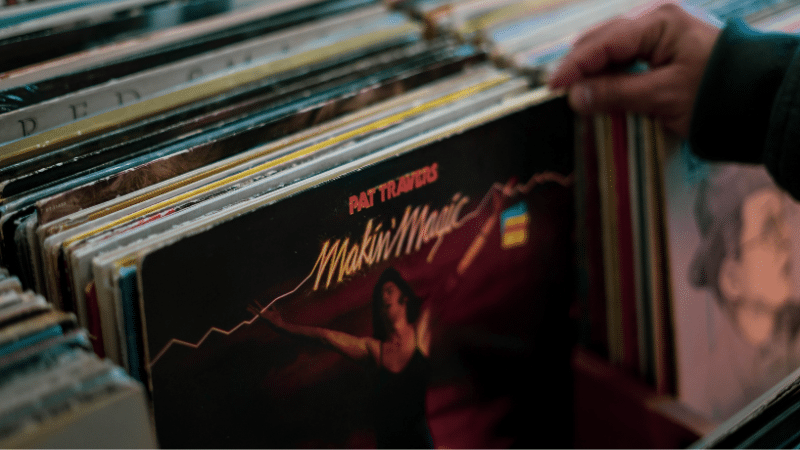How to start an independent Record Label
Interested in launching your own record label? In this post from independent music distributor Symphonic, you’ll get a rundown of how to get started and the most important steps.
by Randi Zimmerman from the Symphonic Blog
What does a label do?
A record label is the entity responsible for releasing your master recordings to the public on retailers, streaming services, radio, etc.. Major parts of a record label’s work involve promotion, marketing your music, landing sync placements, and more. In addition, major labels often pay out advances to cover the recording costs for the album or single in addition to paying to produce physical releases like CDs or LPs.

“How do I know if I’m ready to start my own label?”
There are a couple reasons why someone would want to start their own record label. Whether you want to represent yourself or other artists, it’s a great way to gain some independence, learn more about the industry, direct the futures of other artists and genres, and give yourself the ultimate control over the destiny of your own music.
Regardless of why you want one, however, this is a complicated and time-consuming process that shouldn’t be taken lightly. Doing this on your own is possible, but not recommended if you have no experience in the game. Everyone has their strengths and weaknesses, so build a team that encompasses every skill you need to do this right. Once your team is in order, here’s what you need to do.
Define Your Vision
Your brand identity as a label will play a huge part in your success moving forward. It’s important to choose a specific vibe or genre you’d like to encompass as a label in order to solidify your brand identity in the industry. If you plan on taking on other artists under your wing, they’ll want someone who specializes in their specific genre and gets their vision.
In addition to deciding what genre (or genres) to focus on, this is the time to choose a label name that best represents you, get your official website set up, and trademark your label name. — Before you release anything, you MUST create your website and claim ALL social media pages for your brand prior to releasing your first album. Having your social media in order first gives it time to gain some traction before it’s time to promote you (or your clients) music.
Choose a Business Structure and Register with the State
Next, it’s time to decide on a business structure. Common options include sole proprietorship, partnership, limited liability company (LLC), or corporation. Each structure has its own advantages and disadvantages, so it’s not a bad idea to consult with a lawyer or accountant to figure out the best choice for you.
- For example, an LLC exists separately from its members, which means that those members are not personally responsible for any business debts and liabilities that may arise down the line. Instead, the LLC is responsible. On the other hand, a sole proprietorship is an unincorporated business owned and run by one person.
Choosing to go the sole proprietorship route gives you more personal control over everything, but an LLC saves you some liability if things don’t work out. These are just some general things to consider, but it’s up to you to thoroughly do your research and choose the right path for you.
Once you have made your choice, you will also need to register with the Secretary of State and update that registration annually.
——
Register with SoundExchange & Neighboring Rights Collection Societies
The royalties that SoundExchange collects and distributes are for the featured artist and the sound recording copyright owner. ASCAP, BMI and SESAC collect and distribute royalties for the songwriter, composer and publisher. — The difference is both satellite radio providers and webcasters pay SoundExchange when they stream music.
That means the only way to get that money is with SoundExchange.
They’re the ones who collect these digital performance rights from non-interactive music streaming on internet sources like SiriusXM and Pandora. If you don’t want to miss out on this money, Symphonic can collect SoundExchange royalties on behalf of sound recording owners and/or rightsholders.
- To deliver your catalog to SoundExchange with Symphonic, please create a request to opt-in. We’ll do the rest.
Set Up Distribution Channels
Now, it’s time to get your (or your clients) music onto streaming platforms and DSPs like Spotify, Apple Music, Tidal, etc. To do this, you’ll have to go through a distributor like us. When you sign up for music distribution with Symphonic, we go to work to make sure your releases make the biggest impact possible on as many platforms as possible.
In Conclusion…
Creating your own record label can be an exciting and fulfilling venture, allowing you to discover and promote talented artists while leaving your own mark on the music industry. Although the process of registering a record label can seem daunting and complex, we hope these general steps will help the process go as smoothly as possible. With consistency, determination, and a passion for great music, there’s nothing you can’t do!
I’m making a decent compensation from home $65k/week , which was astonishing under a year prior I was jobless in a horrendous economy. I was honored with these guidelines and presently it’s my obligation to show kindness and share it with Everyone
.
.
Here is I begun————————————➤ http://simplework11.blogspot.com